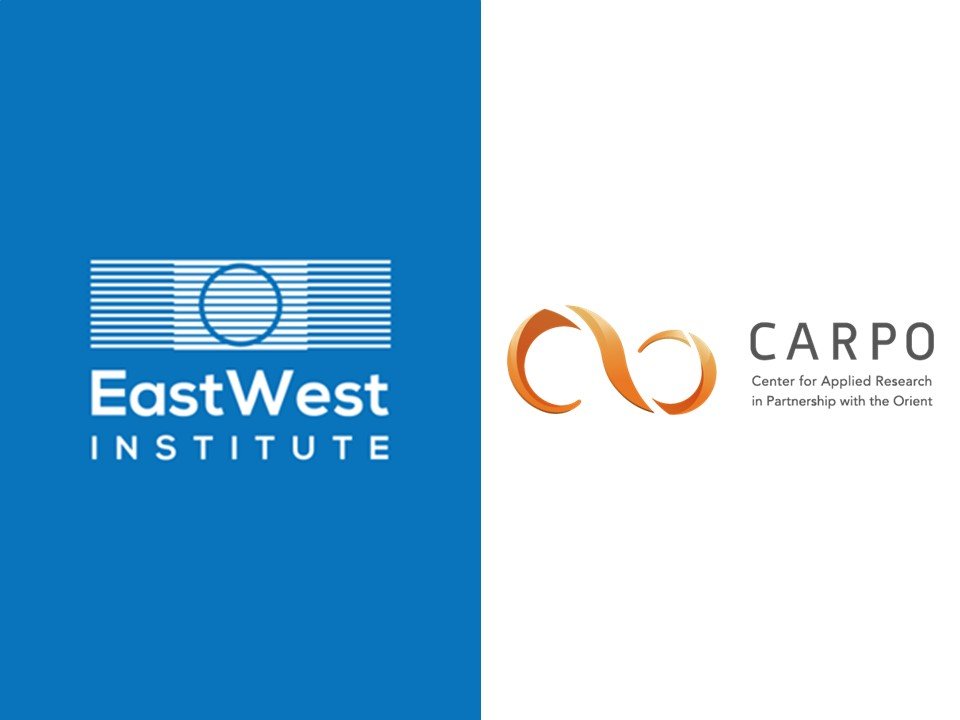
Brussels MENA Briefing: The Economic Dimensions of the Conflict in Yemen
October 6, 2020
The seventh edition of the Brussels MENA Briefing, co-hosted by the EastWest Institute (EWI) and the Center for Applied Research in Partnership with the Orient (CARPO), in partnership with the Rethinking Yemen’s Economy initiative, was dedicated to the economic impact of the ongoing conflict in Yemen—a war that started in 2014/15 and has since turned the country into the world’s worst humanitarian crisis according to the UN.
The Rethinking Yemen’s Economy initiative aims to contribute to peacebuilding and conflict prevention, economic stabilization and sustainable development in Yemen by building consensus in crucial policy areas through engaging and promoting informed Yemeni voices from all backgrounds (the „Development Champions“) in public discourse on development, economy and post-conflict reconstruction in Yemen, and by positively influencing local, regional and international development agendas. It is implemented by CARPO, DeepRoot Consulting and the Sanaa Center for Strategic Studies and is generously funded by the European Union and the Embassy of the Kingdom of the Netherlands to Yemen.
The speakers of this briefing were Laila Tawfik Anaam, development champion, co-founder and managing director of the Yemen Loan Guarantee Program at the Social Fund for Development in Yemen, and Rafat al-Akhali, founder and managing director of DeepRoot Consulting. CARPO President Marie-Christine Heinze moderated the session.
When discussing the economic impacts of the war in Yemen, what needs to be emphasized first, the speakers argued, is the plight of the Yemeni population. 80 percent of Yemenis are living in poverty with approximately 70 percent of them lacking access to water, sanitation and health care. This leaves 24.3 out of 29 million Yemenis in need for humanitarian aid. A spike in unemployment further complicates the living conditions, particularly among the youth, where unemployment is estimated at 50 percent.
One of the speakers explained that approximately 40 percent of Yemeni households have lost their primary source of income in both the private and public sectors. It was emphasized that fisheries and agricultural entrepreneurs, in particular, had been hit hard by the devastating effects of the war.
In addition to that, it was outlined that the banking sector has effectively collapsed and that the monetary system has become dysfunctional. Both speakers referred to the severe consequences caused by the split of the Central Bank of Yemen, which has led to conflicting monetary policies. It was highlighted that those government agencies that provided regular income for both public servants, as well as recipients of social welfare have either halted or interrupted their services.
The experts shed light on the grim prospects for small and medium-sized enterprises (SMEs) in Yemen, which are heavily impacted by closures of and restrictions at sea and airports, as well as land border crossings, which make any form of cross-border trade extremely difficult and cost-intensive. Mobility within Yemen has been reduced massively, it was pointed out, because of the country’s infrastructure—i.e., roads, bridges, tunnels, etc.—being destroyed during the war and because of the high number of checkpoints and lines of conflict that need to be crossed.
Basic needs of companies, such as electricity, pose serious challenges for entrepreneurs, it was explained. They are dependent on private generators, which too often cannot operate due to fuel shortages in the country.
What SMEs in Yemen direly need, according to one speaker, is a legal framework which enables them to operate at sea and airports and border crossings, an overall easing of taxation and the establishment of supporting microfinance institutions with lending capital. It was reiterated that the agricultural sector (fishery, livestock, etc.) should be prioritized in this effort as this would help to address food insecurity.
In general, the war should be seen through the lens of economics, one speaker argued. It is a battle for the “commanding heights” of the country’s economic resources and institutions. It was highlighted that there are currently no real economic incentives for any party to stop the war.
It is important, it was established, that any peace agreement for Yemen entail a clear roadmap for economic stability. The ongoing UN-led peace efforts, it was argued, fall short of addressing the economic drivers of the conflict.
What needs to be put on the agenda, one speaker urged, is the need to re-establish one Central Bank, ensure the resumption of the payment of public sector salaries, define a way to reach an agreement on how to allocate natural resources revenues, and to clearly outline the path towards reconstruction and economic recovery.
While this is a major task, one speaker recalled precedents and blueprints of similar approaches in the past, namely the Dayton Accords and their focus on the Central Bank board and governor in Bosnia and Herzegovina; the Accra Agreement, which entailed a Governance Reform Commission and a Contract and Monopolies Commission; and the case of Angola, where economic power-sharing in the Cabinda Province was part of the conflict settlement strategies.
It was recommended by both speakers that for the European Union to play a role in conflict-resolution in Yemen, these economic factors not only serve as important issues to raise, but as points of departure for European initiatives to support the Yemeni process through diplomacy, aid, investment, capacity-building and efforts for reconstruction and reconciliation.
Adnan Tabatabai, MENA Briefing